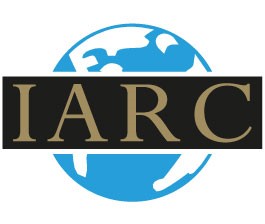Business Studies Online Course
Business Studies is an introductory business skills course. Through this online course you will develop skills in the establishment and/or management of a small business, or a department within a larger organization. This course will guide you through a successful business enterprise by equipping you with the skills and knowledge to take on the business world.
Course Aims:
- Select appropriate procedures for the establishment of a small business.
- Select appropriate procedures for the management of a small business.
- Develop procedures for communicating with suppliers and customers of a small business.
- Develop procedures for addressing problems in a small business.
- Plan the management of staff in a small business.
- Develop strategies for managing production in a small business or department within a larger organisation.
- Perform different financial management tasks used in small business or department within a larger organisation.
- Evaluate marketing techniques used in business.
Get Free Info Pack
Get your free info pack by completing the form below.
Detailed Course Outline
This course is made up of a number of modules. Each of these has self assessment questions, a set task (practical homework) and an assignment which you can upload online. Select each module below to learn more.
There are 8 lessons in this course:
Establishment Procedures
- The Business World
- Ways to Begin a Business
- Buying or Starting Up New
- Market, Location, Regulations
- Risks; emotional, financial
- Common Reasons for Business Failure
- Developing a 12 Month Plan
- Creating a Business Plan
- Motivation, Planning, Customers, Competitors, Promotion, Sales and Pricing, Employees, Premisis, Tax, Cashflow, Your Skills, etc
- Legislation and Business Law
- Legal Obligations
- Partnerships
- Contracts
- Types of Business
Management Procedures
- Management Theory
- Economic View, Behavioural View, Stakeholder Theory
- Policies
- Management Influences
- Government Intervention
- Classical School of Management Theory
- Humanistic Management Theory
- Scientific or Contingency Approach to Management
- Systems Management
- Neo-Human Relations Management
- Organisational Structures
- “Functional”, “Product/Market” and “Matrix” Structures
- Coordination
- Office Work
- Quality Systems
Communication in Business
- Scope of Office Work
- Business Letters
- Customer Service
- Writing Procedures
- Clarity in Writing
- Causes of Confusion
- Concise Wording
- Examples of Quality Assurance
Problem Solving
- Problem Solving Approaches
- Non Compliance Procedures
Staff Management
- Introduction
- Interviewing, Recruitment and Staff Induction
- Advertising
- Potential Candidates
- Interviews
- Job Specifications
- Management Styles
- Supervision
- Communicating with Employees
- Giving Orders
- Delegating
- Motivating Employees
- Security, ethics, gratitude, belief systems, etc
- Negative Motivators
- Space Management
- Time Management
- Viscous and Virtuous Cycles
- Staff Training
- Dealing with Complaints
- Workplace Health and Safety
- Work Scheduling
Productivity
- Introduction
- Total and Partial Productivity Ratios
- Foundation Economics
- Goods, Resources, Performance Criteria
- Economic Laws
- Improving Results in Business
- Profitability Ratios
Financial Management
- Introduction
- Liquidity
- Financial Records
- Steps in the Bookkeeping Process
- Basic Bookkeeping; Double Entry System, Ledger, Entries resulting from Transactions, etc.
- Cash Flow
- Taxation
- Financial Assistance
- Insurance and Types of Insurance
- Financial Terminology
- Budgeting
- Costing
- Cost of Employing Labour
Marketing Techniques
- Scope and Nature of Marketing
- Supply and Demand
- Market Research
- Making Contact and Communicating with Potential Customers
- Convincing a Customer
- Developing an Advertisement or Promotional Message
When you have completed the lessons of your Certificate course, you will be given the option of taking the optional exam. It's okay if you don't want the exam, we still issue your Careerline Certificate. For Advanced Certificates however, the exam is compulsory (per module) and are included in the course fee.
Course Tutor(s)
Thea Roberts B.Comm., M.A.
Liselle Turner Bachelor of Business (Marketing), Diploma in Hospitality Management, Certificate IV in Training and Assessment
Chad Osorio B. Psych. Juris Doctor

Frequently Asked Questions
Can I pay in installments?
Yes! We offer great payment plans, however full payment up front is the cheapest. You can choose the best payment plan for you from the course page, or call us on 07 55368782 to talk to one of our course consultants for a custom plan.
Can I study from anywhere in the world?
We have many international students. Careerline's range of courses are suitable for any one, anywhere in the world.
Do I get a discount if I enroll in a second course?
Yes. You may claim a 5% fee discount when you enroll in a second course, and a further 10% off a three-course package.
Do I have to sit an Exam?
No. If you are enrolled in a Certificate course (100hrs), the exam is optional. You will be issued with a certificate which proves that you are competent in all units, if you choose not to sit the exam.
Do you have set start dates?
There are no set start dates, you may start at any time. Our courses are all self-paced. As our home page says, ‘Courses for Anyone, Anywhere, Anytime’. ‘Anytime’ includes the start time of your choice. However, we do encourage our students to submit assignments on a regular basis. Wherever possible, we suggest developing a study routine.

